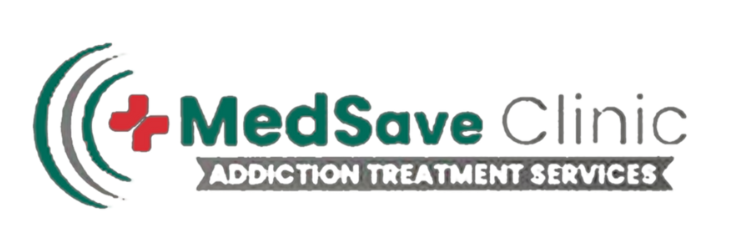- MEDICATION ASSISTED TREATMENT AVAILABLE
- INTENSIVE OUTPATIENT PROGRAM INTAKE
- CALL +1 (614) 432-9790
Your Rights Under The Privacy Rule
How We May Use or Disclose Protected Health Information Privacy Complaints

Protected health information (PHI), about you, is maintained as a written and/or electronic record of your contacts or visits for healthcare services with our practice. Specifically, PHI is information about you, including demographic information (i.e., name, address, phone, etc.), that may identify you and relates to your past, present or future physical or mental health condition and related healthcare services. Our practice is legally required to maintain the confidentiality of your PHI, and to follow specific rules when using or disclosing this information. This Notice describes your rights to access and control your PHI. It also describes how we follow applicable rules when using or disclosing your PHI to provide your treatment, obtain payment for services you receive, manage our healthcare operations and for other purposes that are permitted or required by law.


your right to know what we do with your information
It’s your right to know how your medical information may be used or disclosed and it’s our responsibility to tell you. This document explains how information we gather is used.
Your rights
At any time, you can
- Get a copy of your health and claims records.
- Correct your health and claims records.
- Request confidential communication.
- Ask us to limit the information we share.
- Get a list of those with whom we’ve shared your information.
- Get a copy of this privacy notice.
- Choose someone to act for you.
- File a complaint if you believe your privacy rights have been violated.
You decide
You choose,how we
- Answer Health questions from your family and friends.
- Market our services and sell your information.
Our responsibility
Your information may be used when we
- Help manage the health care treatment you receive.
- Run our organizations.
- Administer your Treatment.
- Do research.
- Comply with the law.
- Respond to organ and tissue donation requests and work with a medical examiner or funeral director.
- Address workers’ compensation, law enforcement, and other government requests.
- Respond to lawsuits and legal actions.
Your rights, in a little more detail.
Your Health Records
- Ask us how to get a copy of your health a other health information we have about you.
- We will provide a copy, or a summary, of your health records, usually within 30 days of your request. We may charge a reasonable, cost-based fee.
Correct Health Records
- Ask us how to correct your health records if you believe they are incorrect or incomplete.
- We may say “no” to your request, but we’ll tell you why in writing within 60 days.
Request confidential communications
- You can ask us to contact you in a specific way (for example, home or office phone) or to send mail to a different address.
- We will consider all reasonable requests, and must say “yes” if you tell us you would be in danger if we do not.
Ask us to limit what we use or share
- You can ask us not to use or share certain health information for treatment, payment, or our operations.
- We are not required to agree to your request, and we may say “no” if it would affect your care.
Get a list of those with whom we’ve shared information
- You can ask for a list of the times we’ve shared your health information for six years prior to the date you ask, who we shared it with, and why.
- We will include all the disclosures except for those about treatment, payment, and health care operations, and certain other disclosures (such as any you asked us to make). We’ll provide one accounting a year for free but will charge a reasonable, cost-based fee if you ask for another one within 12 months.
Get a copy of this privacy notice
- You can ask for a paper copy of this notice at any time, even if you have agreed to receive the notice electronically. We will provide you with a paper copy promptly.
Choose someone to act for you
- If you have given someone medical power of attorney, or if someone is your legal guardian, that person can exercise your rights and make choices about your health information.
- We will make sure the person has this authority and can act for you before we take any action.
File a complaint if you feel your rights are violated
- If you feel we have violated your rights, contact us using the information on above.
- You can file a complaint with the U.S. Department of Health and Human Services Office for Civil Rights, by sending a letter to 200 Independence Avenue, S.W., Washington, D.C. 20201, calling 1-877-696-6775, or visiting
- We will not retaliate against you for filing a complaint.
You choose what we share.
Let us know how we can share your information in these types of circumstances
. If something happens and your family, close friends or others involved in payment for your care need information to help you.
If you are not able to tell us your preference, we may share your information if we believe it is in your best interest. We may also share your information when needed to lessen a serious and imminent threat to health or safety.
We never share your information unless you give us written permission
- For marketing purposes.
- Sell your information.
Typical reasons your information gets shared.
To help manage your health care and treatments
- We can use your health information and share it with professionals who are treating you.
- Example: A doctor sends us information about your diagnosis and treatment plan so we can arrange additional services.
Run our organization
- We can use and disclose your information to run our organization and contact you when necessary.
Pay For Services
- We can use and disclose your health information as Requested by your Health Insurance Company pay for your health services.
- Example: We share information about you with your Health to coordinate payment for your medical visits.
Administer your plan
- We may disclose your health information to your health plan sponsor for plan administration.
- Your Health contracts with us to provide medical services, and we provide your company with health information collected from your visits.
How else can we use or share your health information?
We are allowed or required to share your information in other ways usually in ways that contribute to the public good, such as public health and research. We have to meet many conditions in the law before we can share your information for these purposes. For more information see:
www.hhs.gov/ocr/privacy/hipaa/understanding/consumers/index.html.
Help with public health and safety issues
We can share health information about you for certain situations such as:
- Preventing disease
- Helping with product recalls.
- Reporting adverse reactions to medications.
- Reporting suspected abuse, neglect, or domestic violence.
- Preventing or reducing a serious threat to anyone’s health or safety.
Do research
- We can use or share your information for health research.
Comply with the law
- We will share information about you if state or federal laws require it, including with the Department of Health and Human Services, if it wants to see that we’re complying with federal privacy law.
Respond to organ and tissue donation requests and work with a medical examiner or funeral director
- We can share health information about you with organ procurement organizations.
- We can share health information with a coroner, medical examiner, or funeral director when an individual dies.
Address workers’ compensation, law enforcement, and . other government requests
We can use or share health information about you:
- For workers’ compensation claims.
- For law enforcement purposes or with a law enforcement official.
- With health oversight agencies for activities authorized by law.
- For special government functions such as military, national security, and presidential protective services.
Respond to lawsuits and legal actions
- We can share health information about you in response to a court or administrative order, or in response to a subpoena.
We can share health information about you to alert state or local authorities, if we believe someone is a victim of child abuse or neglect, or domestic violence.
If you are an inmate of a correctional facility or under the custody of a law enforcement official, we may disclose your health information to the correctional institution or law enforcement official in order to provide you with medical services, protect you or others, or to ensure the safety of the correctional facility.
Most uses and disclosures of substance use treatment, behavioral health records, or psychotherapy notes require us to obtain an authorization. If your health information is requested for a use or disclosure that requires your approval or authorization, you will be told why your information is requested, who is asking for the information, and what information is requested. Any time you provide us with a written authorization, you may revoke it.
You can ask for a paper copy of this notice at any time, even if you have agreed to receive the Notice of Privacy Practices electronically.
You may review and print a copy of our most current Notice of Privacy Practices at our website, www.medsaveclinic.com you may request a paper copy by calling our customer service department at 614 505 3126.
Other items we are responsible for
- We are required by law to maintain the privacy and security of your protected health information.
- We will let you know promptly if a breach occurs that may have compromised the privacy or security of your information.
- We must follow the duties and privacy practices described in this notice and give you a copy of it.
- We will not use or share your information other than as described here unless you tell us we can in writing. If you tell us we can, you may change your mind at any time. Let us know in writing if you change your mind.
